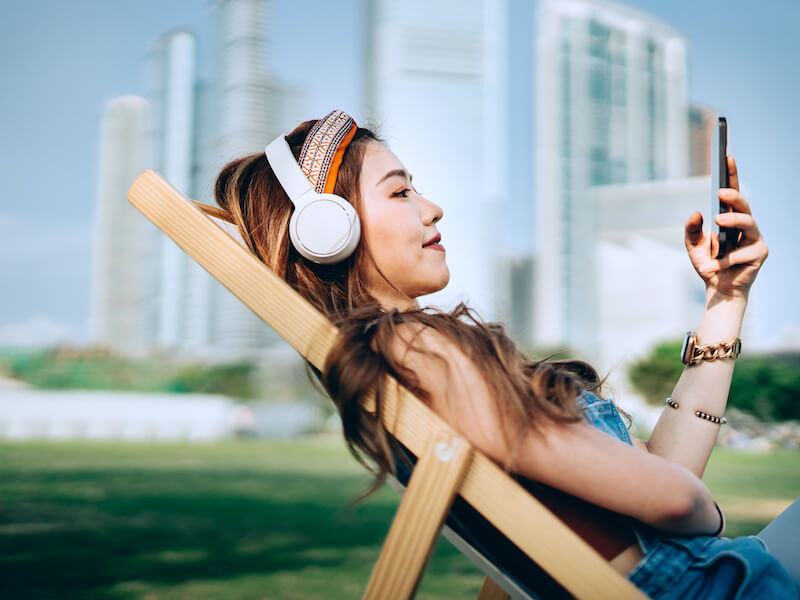
Music is a major part of Aiden’s life. While he’s out jogging, he’s listening to Pandora, while working it’s Spotify, and he has a playlist for everything he does: cardio, cooking, video games, you name it. Everything in his life has a soundtrack and it’s playing on his headphones. But permanent hearing damage might be happening due to the very loud immersive music he loves.
As far as your ears are concerned, there are safe ways to listen to music and dangerous ways to listen to music. But the more hazardous listening option is frequently the one most of us choose.
How can listening to music cause hearing loss?
Over time, loud noises can lead to deterioration of your hearing abilities. We’re used to thinking of hearing loss as an issue related to aging, but more and more research indicates that it’s actually the accumulation of noise-related damage that is the problem here and not anything inherent in the aging process.
It also turns out that younger ears are especially vulnerable to noise-related damage (they’re still growing, after all). And yet, the long-term harm from high volume is more likely to be disregarded by younger adults. So because of extensive high volume headphone use, there has become an epidemic of hearing loss in young individuals.
Is there a safe way to enjoy music?
Unregulated max volume is obviously the “hazardous” way to enjoy music. But there is a safer way to listen to your tunes, and it typically involves turning the volume down. Here are a couple of basic recommendations:
- For adults: Keep the volume at no more than 80dB and for no more than 40 hours a week..
- For teens and young children: You can still listen for 40 hours, but the volume should still be below 75dB.
Forty hours per week is about five hours and forty minutes a day. That may seem like a lot, but it can go by rather quickly. Even still, most individuals have a fairly solid concept of keeping track of time, it’s something we’re taught to do effectively from a very young age.
The harder part is monitoring your volume. On most smart devices, computers, and televisions, volume isn’t calculated in decibels. It’s measured on some arbitrary scale. It could be 1-100. But perhaps it’s 1-16. You may have no clue what the max volume on your device is, or how close to the max you are.
How can you listen to tunes while monitoring your volume?
It’s not very easy to know how loud 80 decibels is, but luckily there are some non-intrusive ways to tell how loud the volume is. It’s even more difficult to understand the difference between 80 and 75dB.
That’s why it’s greatly suggested you utilize one of many free noise monitoring apps. Real-time readouts of the noise around you will be obtainable from both iPhone and Android apps. That way you can keep track of the dB level of your music in real-time and make adjustments. Your smartphone will, with the proper settings, let you know when the volume goes too high.
As loud as a garbage disposal
Your garbage disposal or dishwasher is generally around 80 decibels. That’s not too loud. Your ears will begin to take damage at volumes higher than this threshold so it’s an important observation.
So pay close attention and try to stay clear of noise above this volume. If you do listen to some music above 80dB, don’t forget to minimize your exposure. Perhaps listen to your favorite song at max volume instead of the whole album.
Over time, loud listening will cause hearing problems. Hearing loss and tinnitus can be the result. Your decision making will be more educated the more mindful you are of when you’re entering the danger zone. And safer listening will hopefully be part of those decisions.
Still have questions about safe listening? Give us a call to explore more options.
